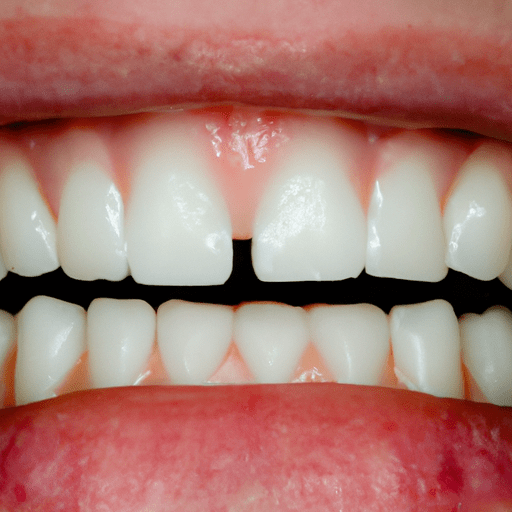Have you ever wondered what happens to your brain when you’re fast asleep? It turns out that there’s more to the state of being “fast asleep” than meets the eye. In this article, we will dive into the hidden depths of deep slumber, uncovering the secrets behind this mysterious and essential aspect of our lives. Prepare to be amazed as we unlock the fascinating world of fast asleep and learn about its profound impact on our overall well-being.

Understanding the Concept of ‘Fast Asleep’
Deeper meaning of ‘Fast Asleep’
When we hear the phrase “fast asleep,” we often think of it as simply being in a deep slumber. However, there is a deeper meaning to this concept. To be fast asleep goes beyond just being in a state of unconsciousness; it refers to achieving a state of sleep where the mind and body are truly at rest and fully immersed in the rejuvenating power of restorative sleep.
How the term ‘Fast asleep’ is perceived in sleep science
In the realm of sleep science, the term “fast asleep” refers to reaching the deeper stages of sleep, known as slow wave or deep sleep. During this stage, brain activity slows down significantly, and the body goes through vital processes to repair and restore itself. Fast asleep, in this context, means experiencing this essential stage of sleep, which plays a crucial role in maintaining overall health and wellbeing.
Understanding the Stages of Sleep
Fundamentals of a typical sleep cycle
To understand why being fast asleep is important, it’s essential to grasp the fundamentals of a typical sleep cycle. A sleep cycle consists of several stages that repeat throughout the night, each with its own unique characteristics and functions. These stages include wakefulness, light sleep, deep sleep, and Rapid Eye Movement (REM) sleep, which is when dreaming occurs.
The role and functions of each sleep stage
During wakefulness, we are alert and conscious, while light sleep serves as a transitional stage between wakefulness and deeper sleep. It is during deep sleep that the body carries out crucial restorative processes, such as tissue repair, muscle growth, and immune system regulation. REM sleep, on the other hand, is responsible for cognitive processes like memory consolidation and emotional regulation.
Concept of Rapid and Slow Sleep
How one transitions from light to deep sleep
The transition from light sleep to deep sleep occurs gradually as we progress through the sleep stages. As the body relaxes and brain activity slows, we enter the slow wave sleep stage, which is also known as the non-REM sleep stage. This is the phase where we are considered to be truly fast asleep.
Deciphering the differences between rapid and slow sleep stages
While deep sleep is characterized by slow brain waves, rapid eye movements, and minimal muscle activity, REM sleep is associated with rapid eye movements and vivid dreaming. These differences in brain activity and bodily functions highlight the contrast between the two sleep stages. Both stages are vital for achieving a balanced and restorative sleep cycle.
Significance of each stage for overall rest
Both rapid and slow sleep stages are essential for overall rest. Deep sleep is critical for physical restoration, allowing the body to repair, rejuvenate, and recharge its energy levels. REM sleep, on the other hand, is crucial for mental rejuvenation, facilitating cognitive processes such as memory consolidation and emotional regulation. The combination of both stages contributes to optimal rest, leaving you feeling refreshed and revitalized upon waking.
Importance of Deep Sleep
Understanding the physiology of deep sleep
Deep sleep, often referred to as delta sleep or stage three of non-REM sleep, is the stage where the body experiences the highest levels of restoration and rejuvenation. During this stage, the brain emits slow, rhythmic delta waves, and the body’s vital functions, such as heart rate and blood pressure, decrease. It is during deep sleep that the body repairs and regenerates tissues and releases growth hormones essential for development and maintenance.
Role of deep sleep in health and wellbeing
Deep sleep is not only crucial for physical restoration but also for maintaining overall health and wellbeing. Lack of deep sleep can lead to impaired immune function, increased risk of chronic conditions like heart disease and diabetes, and even cognitive decline. On the other hand, getting sufficient deep sleep has been shown to enhance memory and learning, promote emotional stability, and support overall mental and physical health.

Influencers of Fast Asleep
Factors contributing to entering fast asleep swiftly
A variety of factors can contribute to entering a state of fast asleep more swiftly. Establishing a consistent sleep schedule, practicing relaxation techniques before bed, and creating a sleep-friendly environment are all influential in improving sleep onset. Additionally, avoiding stimulants like caffeine or electronic devices close to bedtime can help signal to the body that it is time to wind down and prepare for sleep.
Effect of lifestyle and environment on quality of sleep
Your lifestyle and environment can have a significant impact on the quality of your sleep. Engaging in regular exercise, maintaining a balanced diet, and managing stress levels effectively can all contribute to improved sleep quality. Creating a comfortable and tranquil sleep environment, free from distractions and excessive noise or light, can also promote fast asleep and enhance overall sleep satisfaction.
Impact of exercise and diet on sleep cycle
Regular exercise plays a crucial role in regulating the sleep-wake cycle and promoting fast asleep. Physical activity can help reduce stress, release tension, and improve overall sleep quality. Similarly, maintaining a balanced diet and avoiding heavy meals close to bedtime can contribute to better sleep. Certain foods and beverages, such as those containing caffeine or high levels of sugar, can disrupt sleep patterns and make it more difficult to achieve a state of fast asleep.
The Dangers of Sleep Deprivation
Physical and psychological consequences of inadequate sleep
Sleep deprivation can have severe physical and psychological consequences. When we consistently fail to get enough sleep, we may experience daytime fatigue, impaired cognitive function, decreased alertness, and a weakened immune system. Sleep deprivation can also negatively impact mood, leading to irritability, anxiety, and even depression. Additionally, chronic sleep deprivation has been linked to an increased risk of developing conditions such as obesity, diabetes, and cardiovascular disease.
Potential long-term health issues
Long-term sleep deprivation has the potential to contribute to several serious health issues. It can disrupt the body’s hormonal balance, leading to weight gain, insulin resistance, and an increased risk of developing type 2 diabetes. Sleep deprivation has also been associated with high blood pressure, heart disease, and an increased risk of stroke. Additionally, chronic sleep deficiency has been shown to have adverse effects on mental health, increasing the risk of anxiety disorders, depression, and cognitive decline.

Sleep Disorders and Fast Asleep
Common sleep disorders that impair sleep quality
Numerous sleep disorders can interfere with achieving a state of fast asleep and disrupt the overall quality of sleep. Some common sleep disorders include insomnia, sleep apnea, restless legs syndrome, and narcolepsy. Each of these disorders can significantly affect sleep duration, continuity, and the ability to reach the restorative stages of sleep.
How sleep disorders interfere with entering fast asleep
Sleep disorders like insomnia can make it challenging to fall asleep or stay asleep, causing difficulty in achieving a state of fast asleep. Sleep apnea, characterized by breathing interruptions during sleep, can disrupt the natural sleep cycle and prevent the body from entering deeper sleep stages. Restless legs syndrome can cause uncomfortable sensations in the legs, making it difficult to relax and fall asleep easily. Narcolepsy, a neurological disorder, can lead to excessive daytime sleepiness and fragmented sleep, hindering the ability to enter fast asleep.
Interventions for Better Quality of Sleep
Simple changes to promote healthier sleep habits
Making simple changes to your daily routine and sleep habits can have a significant impact on the quality of your sleep and help you achieve a state of fast asleep. Establishing a consistent sleep schedule, creating a relaxing bedtime routine, and ensuring your sleep environment is comfortable and conducive to rest are all effective interventions. Additionally, practicing relaxation techniques, such as deep breathing or meditation, can promote a calm mind and body before sleep.
When sleep aid medication might be necessary and their potential side effects
In some cases, when lifestyle changes alone are not sufficient, sleep aid medications may be prescribed to help improve sleep quality and achieve a state of fast asleep. It is important to consult with a healthcare professional before starting any sleep medication, as they can provide guidance on the best approach for your specific situation. It’s crucial to be aware of potential side effects and to use sleep aid medications only as directed.
Understanding the Connection of Sleep and Mental Health
Impact of sleep on mental clarity and emotional stability
Sleep plays a vital role in maintaining mental clarity and emotional stability. When we are fast asleep and adequately rested, our cognitive function, memory, and ability to concentrate are enhanced. Sufficient sleep also helps regulate emotions, allowing for improved mood regulation and a decreased risk of developing emotional disorders such as anxiety and depression.
How good quality sleep can help manage stress and anxiety
Quality sleep has a powerful impact on stress and anxiety management. For individuals experiencing high levels of stress or anxiety, achieving a state of fast asleep can provide a much-needed respite. During sleep, the body undergoes essential relaxation and restoration processes, reducing the impact of stress hormones and promoting a sense of calm and balance. Consistently obtaining good quality sleep can help individuals manage stress and anxiety more effectively.
Navigating Sleep in the Modern World
Effects of technology on sleep quality
In today’s digital age, technology can have a significant impact on sleep quality. The blue light emitted by electronic devices, such as smartphones, tablets, and laptops, can interfere with the body’s natural sleep-wake cycle, making it harder to achieve fast asleep. The constant stimulation and accessibility of information can also lead to increased stress and anxiety, contributing to sleep difficulties. It is important to establish healthy boundaries and practice good sleep hygiene by limiting screen time before bed.
Importance of sleep hygiene in the digital age
Maintaining good sleep hygiene is crucial, especially in the modern world with its constant distractions and demands. Practicing good sleep hygiene involves adopting habits and behaviors that promote healthy sleep. This includes maintaining a consistent sleep schedule, creating a calming bedtime routine, and ensuring the sleep environment is conducive to rest. Prioritizing sleep and implementing good sleep hygiene practices can greatly enhance your ability to achieve fast asleep and experience the benefits of a well-rested mind and body.
In conclusion, understanding the concept of ‘fast asleep’ goes beyond the surface level of simply being in a deep slumber. It encompasses the achievement of reaching the deeper stages of sleep, such as slow wave sleep, and experiencing the restorative power of a truly restful night. By understanding the stages of sleep, the significance of each stage, and the factors that influence sleep quality, we can prioritize and optimize our sleep to ensure we are fast asleep and reaping the numerous benefits it brings to our overall health and wellbeing.





